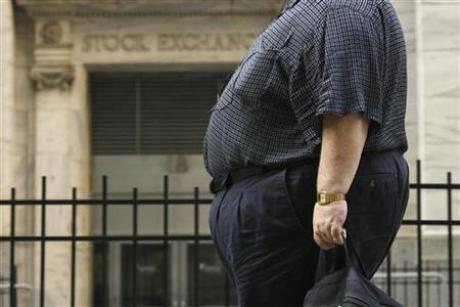Americans getting fatter, especially in the South
(Agencies)
Updated: 2010-06-30 09:42
 |
Large Medium Small |

Obesity rates climbed again last year with 28 U.S. states reporting adults are fatter now than a year ago, two advocacy groups said on Tuesday.
Obesity rates fell only in the District of Columbia, and the groups warned that dealing with the epidemic should be a vital part of reforming healthcare.
"Obesity is one of the biggest public health challenges the country has ever faced, and troubling disparities exist based on race, ethnicity, region, and income," said Jeffrey Levi, director of Trust for America's Health, which sponsored the report along with the Robert Wood Johnson Foundation.
Levi said the United States has taken "bold steps" to address obesity but the response has yet to translate into thinner waistlines, particularly in Southern states.
The annual ranking of U.S. states found 10 out of the 11 states with the highest rates of obesity were in the South with Mississippi number one for the sixth year in a row with 33.8 falling into the category.
Over 25 percent of adults in 38 states are obese. Race and poverty continue to play a role.
Rates for blacks and Latinos were higher than for whites in at least 40 states and the District of Columbia. Some 35 percent of adults earning less than $15,000 per year were obese against 24 percent of adults earning $50,000 or more per year.
The report also includes a new poll on childhood obesity conducted by Greenberg Quinlan Rosner Research and American Viewpoint. It found that 80 percent of Americans recognize that childhood obesity is a significant and growing national challenge, and 50 percent think childhood obesity is so important that money should be spent now to address it.
The survey also found that 84 percent of parents believe their children are at a healthy weight. Research shows nearly a third of children and teens -- more than 12 million -- are obese or overweight.
The groups did see some signs of progress, including provisions in the new health reform law for disease prevention and wellness, a White House Task Force on child obesity outlining steps federal agencies can take, and the "Let's Move" initiative launched by First Lady Michelle Obama that aims to solve childhood obesity within a generation.
Being overweight or obese raises the risk of heart disease, diabetes, some cancers, arthritis and other conditions.
Obese children are more likely to be saddled with risk factors associated with heart disease and type 2 diabetes. They also are much more likely to be obese as adults.